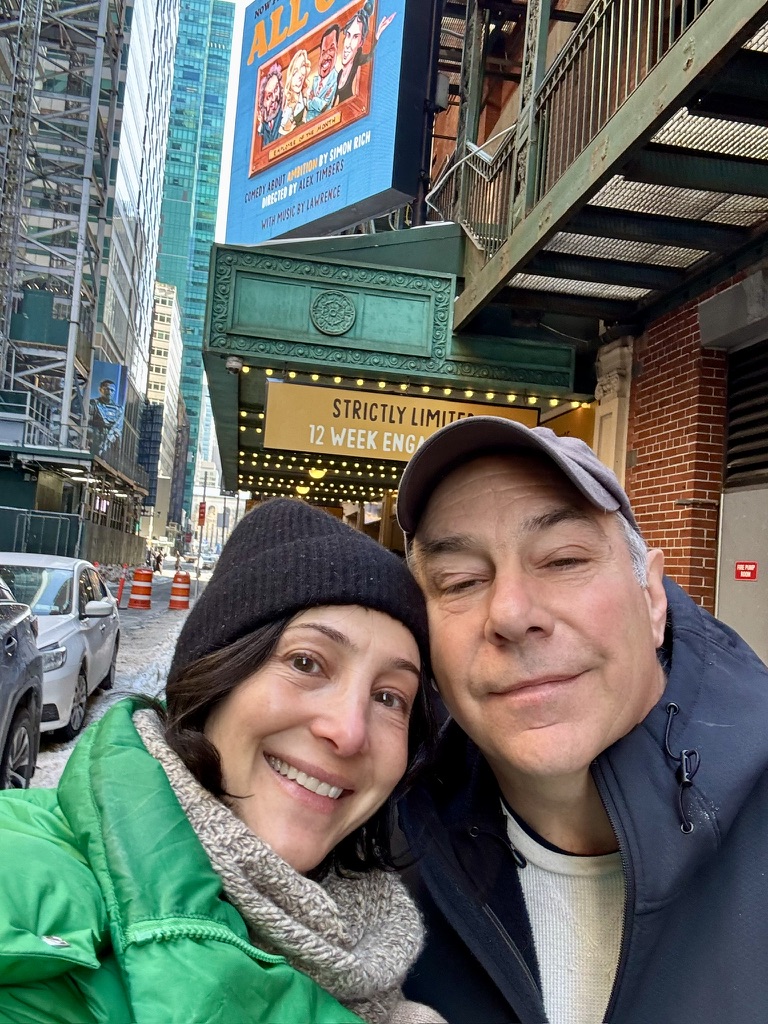During intermission at a recent solo show performance, I was approached by an audience member who wanted to tell me how much he enjoyed my story about the time I worked at the stripper for a bachelorette party in the break room of the McDonald’s restaurant where I was working.
It was a long time ago.
“Apocryphal, I’m sure,” the man said. “But still funny.”
In case you’re not aware, the word “apocryphal” describes a story that is often told but almost certainly untrue. Sort of like George Washington chopping down the cherry tree or almost anything Donald Trump has ever said.
I was instantly angry. I can thankfully count on one hand the number of times someone has approached me to challenge the veracity of a story, but I also remember each of those times exceedingly well because it really hurts. You stand on a stage and share a moment of your life with a group of strangers, often baring your soul in the process, only to have a middle-aged white guy approach you to express his doubts about your story.
It’s happened exactly five times in my life. It’s always been a middle aged white guy.
My responses to these horrible human beings have varied.
Once I earnestly argued the veracity of my story, going so far as to tell the man that I had a newspaper clipping at home that essentially verified most of the story and offering to send him a photo of the clipping the next day.
Another time, a friend who was deeply involved in the story was also present in the audience that night, so I offered to drag my friend over to verify my story.
Still another time, I simply walked away in disgust.
Telling someone that you don’t believe their story is a despicable and cruel thing to do to anyone, but it’s especially rotten right after someone has stepped off the stage following a performance.
When this man told me that my story was “Apocryphal, I’m sure,” I immediately decided upon a new course of action. Instead of defending the story or offering to prove its veracity (I still own the thong that I wore that night) or simply ignoring the jerk, I went on the offensive.
“What is wrong with you?” I asked. “Is your life so tragically boring and utterly forgettable that you can’t begin to imagine someone doing something as crazy as what I described in my story?”
He tried to interject, but I didn’t allow it.
“No,” I said. “I’m fine. I’m a professional, so people like you mean nothing to me. But there are performers in shows like this telling stories and performing for the first time. Or the fifth time. Or the tenth time. Say something as cruel to them like you just said to me, and they may never take the stage again. So even if you doubt the truth of a story, keep your mouth shut. You never know. I once stripped in the break room of a McDonald’s in Milford, Massachusetts for a bachelorette party, and nothing you say or think will ever change that.”
I can’t promise that my words came out exactly that way, but it’s pretty close, I think. And it’s what I will say if it ever happens again.
As I was speaking, two women had approached to congratulate me on the first half of the show (and suggest I pitch something to Netflix), so they caught the second half of my tirade. I suspect this was why the man stormed off when I finished.
It’s easy to be rotten to someone when you’re one-on-one. It’s a lot harder with an audience.
For the record, the man returned to his seat for the second half of the show. It took me a couple minutes to find him, but when I did, I was sure to make a lot of eye contact with him.
There have been a handful of times (or maybe a couple of handfuls of times) when I’ve heard someone tell a story and seriously doubted its veracity, mostly because of logical inconsistencies in the story or the sheer improbability of events. But I would never think to approach that storyteller after the fact to challenge their story, because you just never know.
The world is a strange and wondrous place. Bizarre and improbable coincidences happen all the time. Remarkable and unbelievable confluences of events occur almost every day. The impossible often becomes possible.
Strange and bizarre and crazy things have happened to me many times, often as a result of my own stupidity or foolishness or bad luck, but sometimes because people and events collided in just the right way.
I suspect that less than one percent of the thousands of stories I’ve listened to over the years have been untrue, but even those stories that aren’t true probably contain bits of truth, distorted by exaggeration, embellishment, or fictional elements.
But if I’m right and less than one percent aren’t true, that isn’t a bad ratio of truth to fiction.
And if a storyteller needs to invent a story from whole cloth rather than simply sharing a truth from their life?
I feel sorry for them. I’m saddened by the thought that they don’t see their actual life worth sharing with others. These storytellers don’t deserve my ire or outrage. Instead, I pity them for not seeing all of the stories in their lives that audiences would undoubtedly find entertaining, interesting, and compelling.
But those people who tell storytellers that their stories aren’t true? Doubt the veracity of a story? Declare it apocryphal?
Ire and outrage henceforth. It’s exactly what they deserve.
If you were curious about my stripping story, I told it at a Moth GrandSLAM years ago (at Elysha’s urging, to her credit). Here is the recording:
https://www.youtube.com/watch?v=OdPS3Ai-vEw


